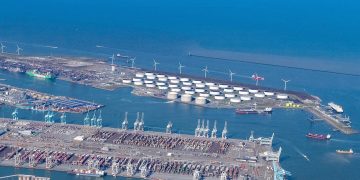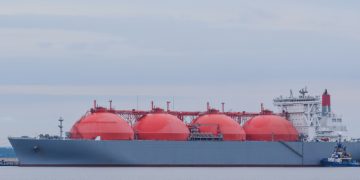Global trade is set to reach a record $33 trillion in 2024, according to the latest Global Trade Update by UN Trade and Development (UNCTAD).
According to UNCTAD, this $1 trillion increase, reflecting 3.3% annual growth, highlights resilience in global trade despite persistent challenges. Robust growth in services trade, up 7% for the year, accounted for half of the expansion, while goods trade rose 2% but remained below its 2022 peak. Global trade grows 3.3% in 2024, driven by a 7% rise in trade in services.
Opportunities amidst uncertainty
Developing economies, traditionally strong drivers of global trade, faced headwinds in 2024, with imports contracting 1% and South-South trade falling by the same margin in the third quarter. In contrast, developed economies led Q3 growth, with stable demand driving a 3% rise in imports and 2% in exports.

Despite these challenges, opportunities remain for developing economies to capitalize on high-growth sectors. ICT and apparel trade surged, with increases of 13% and 14%, respectively, in the third quarter 2024. This growth underscores the potential for diversification and entry into value-added industries. Stable global growth forecasts and easing inflation also present a chance to build resilience in 2025.
Sectoral pressures and growth prospects
While ICT and apparel showed strong momentum, traditional sectors critical to developing economies faced declines. Energy trade fell 2% for the quarter and 7% for the year, while metals trade contracted by 3% both quarterly and annually. Automotive trade dropped 3% in Q3 but is expected to end the year with modest 4% growth.
Global maritime trade
Regarding shipping, according to the Review of Maritime Transport 2024 report, global maritime trade grew by 2.4% in 2023, recovering from a 2022 contraction, but the recovery remains fragile. Key chokepoints like the Suez and Panama Canals are increasingly vulnerable to geopolitical tensions, conflicts, and climate change. However, the future remains uncertain.
The report projected a modest 2% growth for 2024, driven by demand for bulk commodities like iron ore, coal, and grain, alongside containerized goods.
Uncertainty looms over 2025 amid risks of trade wars and ongoing geopolitical challenges
The 2025 trade outlook is clouded by potential US policy shifts, including broader tariffs that could disrupt global value chains and impact key trading partners.
Such measures risk triggering retaliation and ripple effects, affecting industries and economies along entire supply chains. Even the mere threat of tariffs creates unpredictability, weakening trade, investment and economic growth.
Countries most exposed to changes in US trade policy are likely those with large trade surpluses with the country and higher tariff barriers. Based on 2023 figures for trade in goods, these include China (about $280 billion trade surplus), India ($45 billion), the European Union ($205 billion) and Viet Nam ($105 billion).
Other nations with trade surpluses, such as Canada ($70 billion), Japan ($70 billion), Mexico ($150 billion) and the Republic of Korea ($50 billion), may also face some risks, despite imposing relatively lower tariffs on US imports or having established trade agreements with the country.
The US dollar’s uncertain trajectory and US macroeconomic policy changes add to global trade concerns.
Trade remains a cornerstone of sustainable development. To seize the opportunities in 2025, developing economies need coordinated support to navigate uncertainty, reduce dependencies, and strengthen their links to global markets.
… said UNCTAD Secretary-General Rebeca Grynspan.



























































